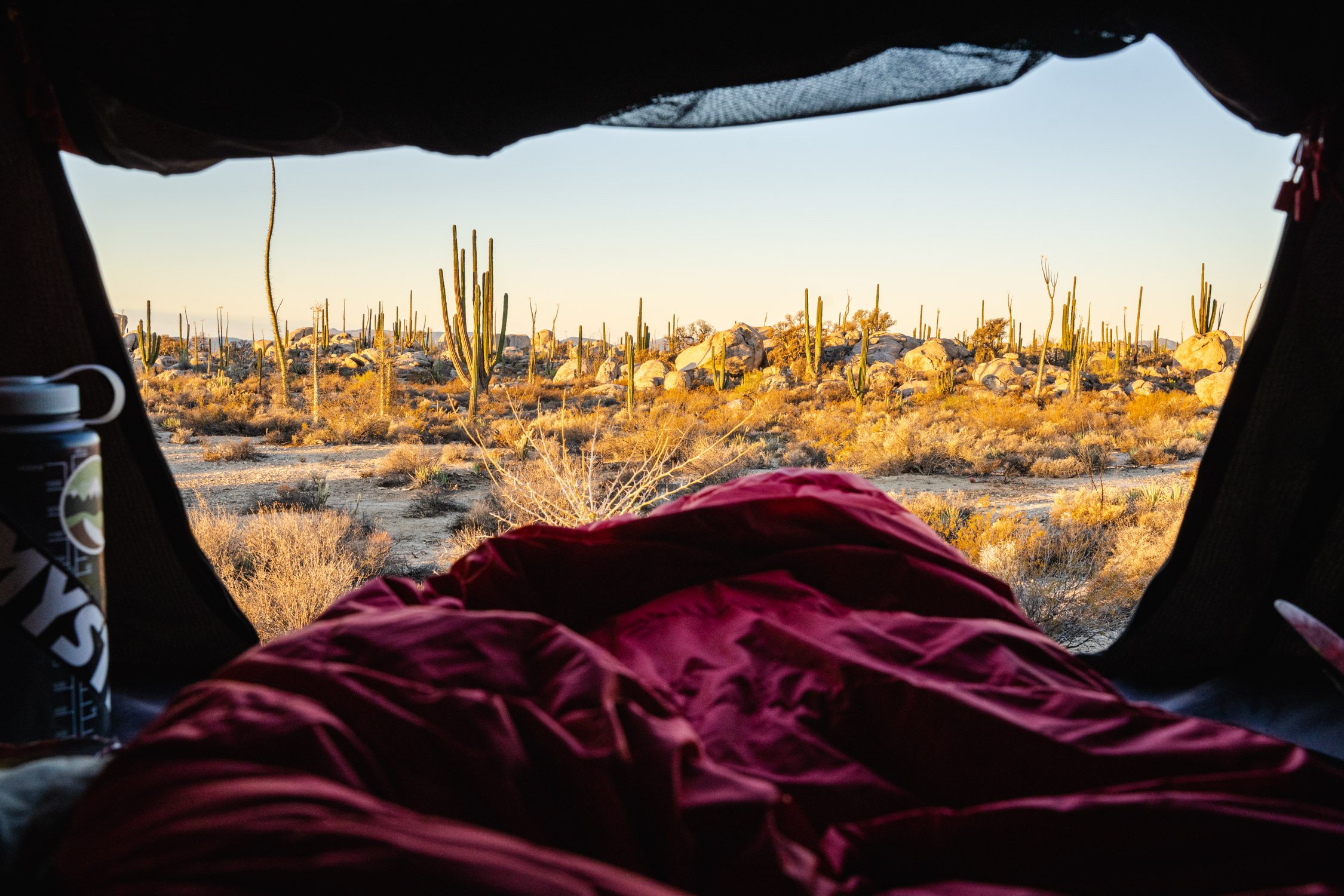Choosing the right tent for your camping trip can significantly impact your overall outdoor experience. With a wide range of options available in the market, finding the perfect tent can seem daunting. However, by considering factors such as tent size, capacity, seasonality, design features, and budget, you can narrow down your choices and select a tent that meets your specific camping needs. Let's delve into each of these factors to help you pick the right tent for your next adventure.
Camping in Bridgeport, CA with a Featherstone Tent. Photo by Dalton Johnson
Tent Size and Capacity
The first consideration when choosing a tent is its size and capacity. Determine how many people will be using the tent and whether you need additional space for gear or pets. Tent capacities are typically labeled as one-person, two-person, three-person, and so on, but keep in mind that these ratings can vary between brands. It's often a good idea to choose a tent with a slightly higher capacity than the number of people to allow for extra space and comfort.
Seasonality
Tents are categorized into three main types based on their seasonality: three-season, four-season, and summer tents.
Three-Season Tents: These tents are designed for use in spring, summer, and fall. They offer good ventilation for warm weather and provide adequate protection against light rain and wind. They are not suitable for extreme cold or heavy snow conditions.
Four-Season Tents: Also known as winter or mountaineering tents, these are built to withstand harsh weather conditions, including heavy snow, strong winds, and low temperatures. They have stronger poles, reinforced fabric, and less mesh for better insulation.
Summer Tents: These are lightweight and designed for warm weather camping. They prioritize ventilation and are not suitable for cold or rainy conditions.
Choose a tent based on the seasons and weather conditions you expect to encounter during your camping trips.
Design Features
Consider the following design features when selecting a tent:
Tent Shape: Tents come in various shapes such as dome, cabin, tunnel, and geodesic. Dome tents are sturdy and easy to set up, while cabin tents offer more headroom but can be heavier. Geodesic tents are great for windy conditions due to their multiple pole crossings.
Weight: If you plan on backpacking or hiking to your campsite, opt for a lightweight tent. Car campers may prioritize space and comfort over weight.
Doors and Vestibules: Multiple doors allow for easier access, especially in larger tents. Vestibules provide extra storage space for gear and muddy boots.
Ventilation: Look for tents with mesh panels, windows, and adjustable vents to improve airflow and reduce condensation.
Freestanding vs. Non-Freestanding: Freestanding tents can be set up without stakes and are easier to move around. Non-freestanding tents require stakes for stability but are often lighter.
Budget
Set a budget for your tent purchase and prioritize features based on your needs. High-quality tents with advanced features may come at a higher price, but they offer durability and better performance in challenging conditions. Consider the long-term value of your investment when deciding on a budget.
Additional Tips
Reviews and Recommendations: Read reviews from other campers and outdoor enthusiasts to gain insights into the durability, performance, and ease of use of different tent models.
Try Before You Buy: If possible, set up the tent in-store or in your backyard to familiarize yourself with the setup process and ensure it meets your expectations.
Consider Accessories: Factor in additional accessories such as footprint (groundsheet), rainfly, and gear loft for added protection and organization.
Warranty and Customer Support: Check the warranty coverage and customer support offered by the tent manufacturer for peace of mind and assistance in case of any issues.
Camping on a beach in Baja, Mexico. Photo by Dalton Johnson
By carefully considering these factors and doing thorough research, you can confidently choose the right tent for your camping adventures. Remember that a well-suited tent enhances your outdoor experience and provides comfort and shelter during your wilderness explorations.








